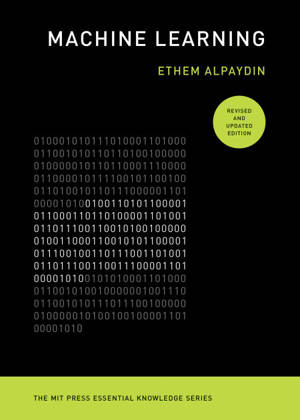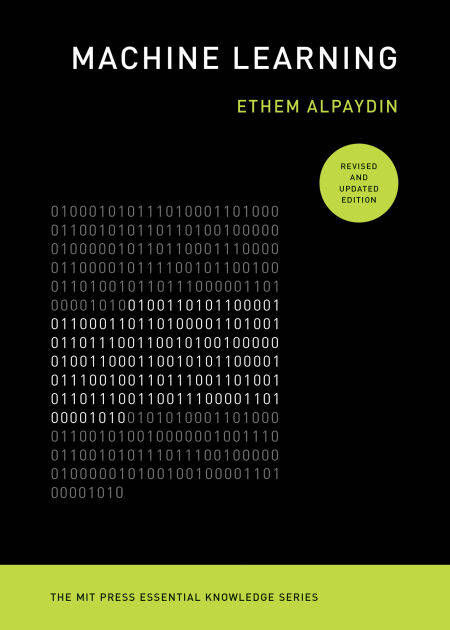
- Afhalen na 1 uur in een winkel met voorraad
- Gratis thuislevering in België vanaf € 30
- Ruim aanbod met 7 miljoen producten
- Afhalen na 1 uur in een winkel met voorraad
- Gratis thuislevering in België vanaf € 30
- Ruim aanbod met 7 miljoen producten
Zoeken
Omschrijving
MIT presents a concise primer on machine learning—computer programs that learn from data, and the basis of applications like voice recognition and driverless cars.
No in-depth knowledge of math or programming required!
Today, machine learning underlies a range of applications we use every day, from product recommendations to voice recognition—as well as some we don’t yet use every day, including driverless cars. It is the basis for a new approach to artificial intelligence that aims to program computers to use example data or past experience to solve a given problem. In this volume in the MIT Press Essential Knowledge series, Ethem Alpaydin offers a concise and accessible overview of “the new AI.” This expanded edition offers new material on such challenges facing machine learning as privacy, security, accountability, and bias.
Alpaydin explains that as Big Data has grown, the theory of machine learning—the foundation of efforts to process that data into knowledge—has also advanced. He covers:
• The evolution of machine learning
• Important learning algorithms and example applications
• Using machine learning algorithms for pattern recognition
• Artificial neural networks inspired by the human brain
• Algorithms that learn associations between instances
• Reinforcement learning
• Transparency, explainability, and fairness in machine learning
• The ethical and legal implicates of data-based decision making
A comprehensive introduction to machine learning, this book does not require any previous knowledge of mathematics or programming—making it accessible for everyday readers and easily adoptable for classroom syllabi.
No in-depth knowledge of math or programming required!
Today, machine learning underlies a range of applications we use every day, from product recommendations to voice recognition—as well as some we don’t yet use every day, including driverless cars. It is the basis for a new approach to artificial intelligence that aims to program computers to use example data or past experience to solve a given problem. In this volume in the MIT Press Essential Knowledge series, Ethem Alpaydin offers a concise and accessible overview of “the new AI.” This expanded edition offers new material on such challenges facing machine learning as privacy, security, accountability, and bias.
Alpaydin explains that as Big Data has grown, the theory of machine learning—the foundation of efforts to process that data into knowledge—has also advanced. He covers:
• The evolution of machine learning
• Important learning algorithms and example applications
• Using machine learning algorithms for pattern recognition
• Artificial neural networks inspired by the human brain
• Algorithms that learn associations between instances
• Reinforcement learning
• Transparency, explainability, and fairness in machine learning
• The ethical and legal implicates of data-based decision making
A comprehensive introduction to machine learning, this book does not require any previous knowledge of mathematics or programming—making it accessible for everyday readers and easily adoptable for classroom syllabi.
Specificaties
Betrokkenen
- Auteur(s):
- Uitgeverij:
Inhoud
- Aantal bladzijden:
- 280
- Taal:
- Engels
- Reeks:
Eigenschappen
- Productcode (EAN):
- 9780262365352
- Verschijningsdatum:
- 16/08/2021
- Uitvoering:
- E-book
- Beveiligd met:
- Adobe DRM
- Formaat:
- ePub

Alleen bij Standaard Boekhandel
+ 15 punten op je klantenkaart van Standaard Boekhandel
Beoordelingen
We publiceren alleen reviews die voldoen aan de voorwaarden voor reviews. Bekijk onze voorwaarden voor reviews.








